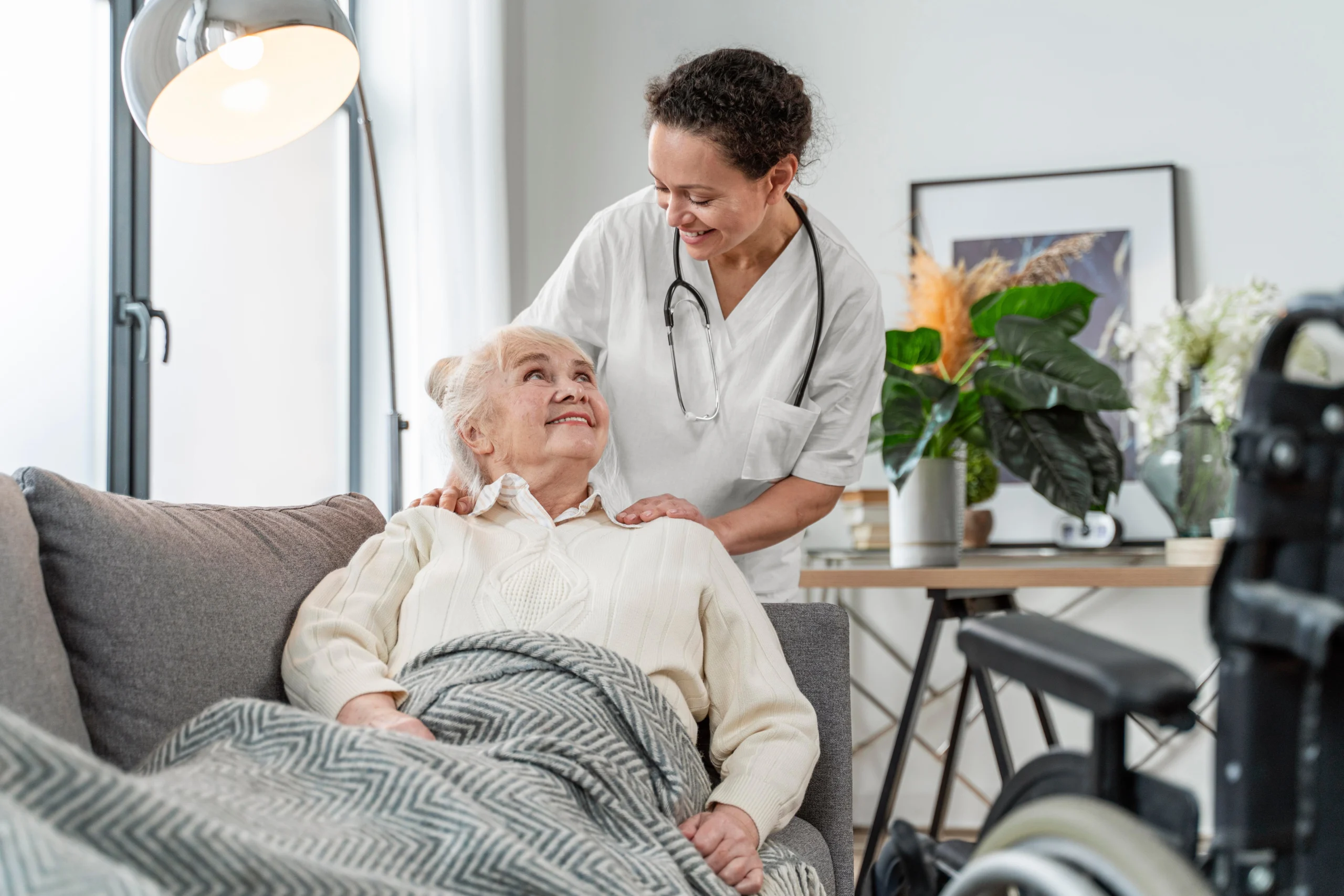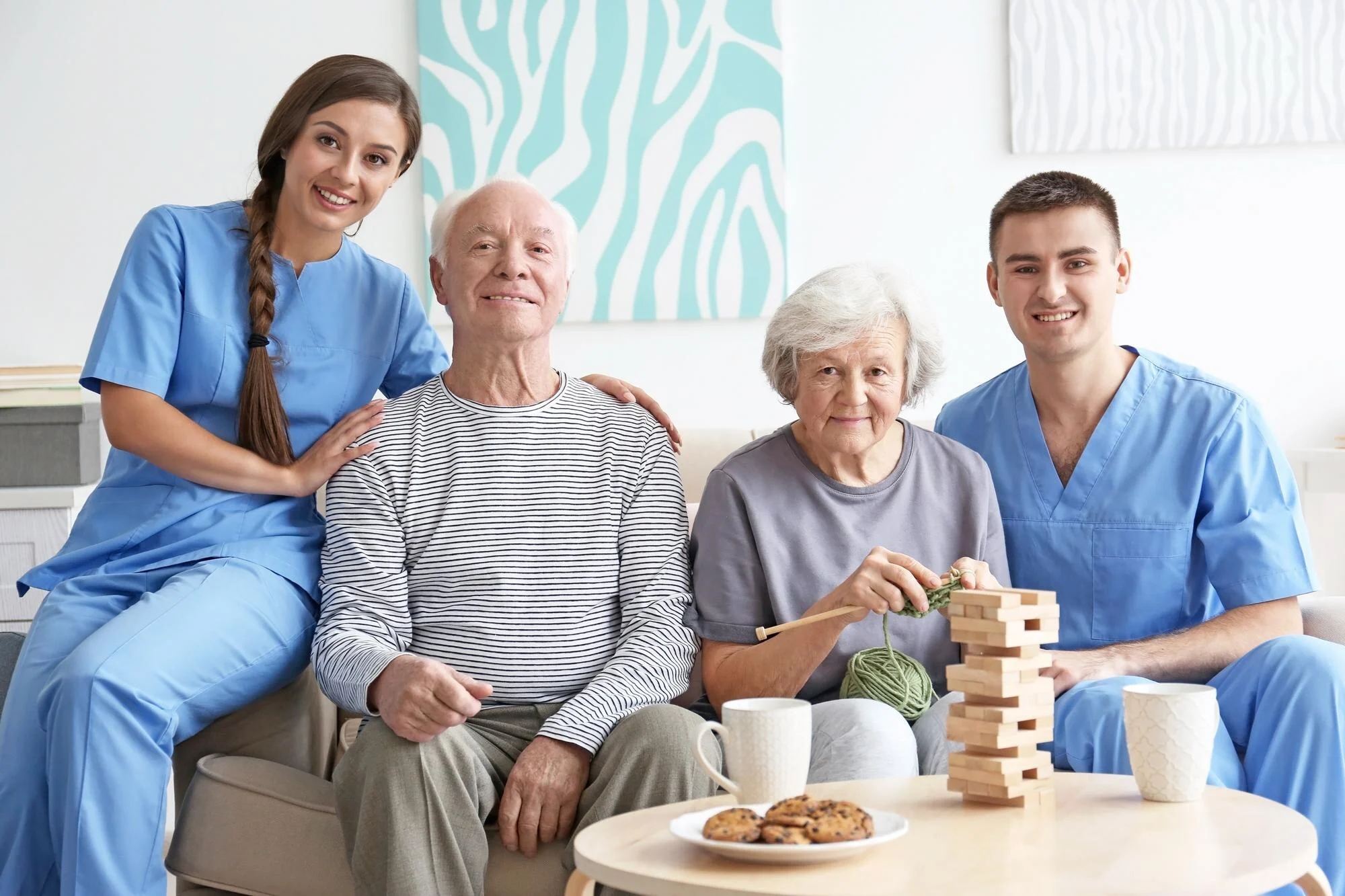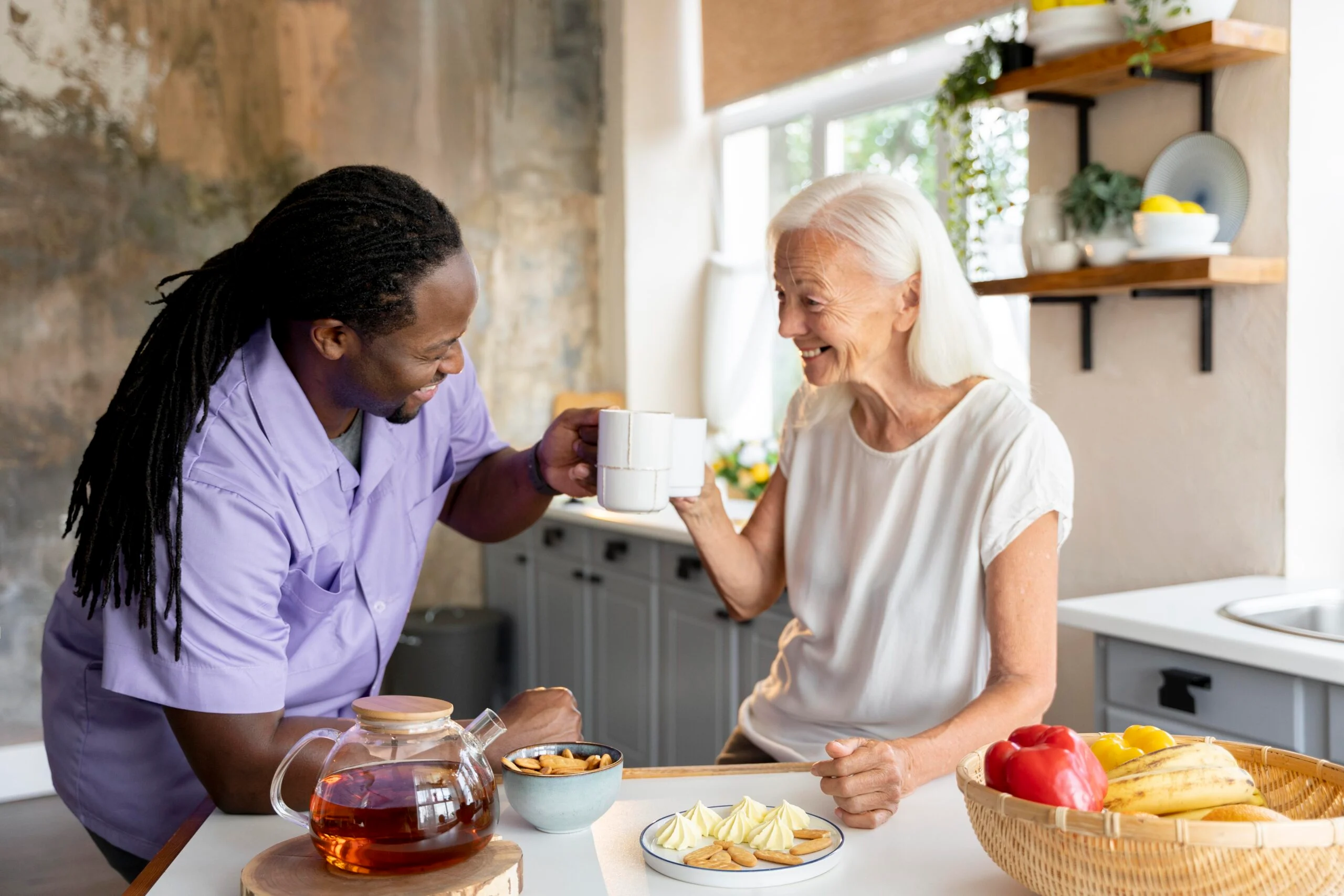The reality hits hardest during those quiet moments at work or in the middle of the night, wondering if your aging parent remembered to take their blood pressure medication or if they’re eating properly.
This constant worry affects millions of adult children who are trying to balance their own lives while ensuring their elderly parents receive the care they need.
The statistics paint a concerning picture: seniors living alone are 3 times more likely to experience medication errors, and 1 in 4 older adults fall each year, with many incidents going unreported for hours.
Understanding what really happens during those unsupervised hours isn’t just about peace of mind; it’s about preventing serious health crises and maintaining your loved one’s independence for as long as possible.
What Actually Happens When Family Caregivers Aren’t Present
The gap between what families think is happening and reality can be startling.
Research shows that older adults who live alone are significantly more prone to medication errors, with studies indicating that around 50% of the older adult population face challenges with medication use.
Meanwhile, one in four people falls at least once a year after age 65, with 55% of fall injuries among older people occurring inside the home.
Many of these incidents go unreported to family members, ranging from minor falls and medication mix-ups to more serious issues like forgetting to eat meals or leaving stove burners on.
These incidents ranged from minor falls and medication mix-ups to more serious issues like forgetting to eat meals or leaving stove burners on.
Home care for elderly individuals becomes critical when you consider that many seniors develop coping mechanisms to hide their struggles. They might stack pillows to disguise a fall, skip meals because cooking feels overwhelming, or stop taking medications that cause side effects.
Without consistent oversight, these small adaptations can quickly escalate into major health problems.
The emotional toll extends beyond the senior to their family members.
Understanding the Different Types of Elder Care Support
Navigating the world of elderly care services can feel overwhelming, especially when you’re trying to determine what level of support your parent needs. The key is understanding that elder care exists on a spectrum, from light assistance to comprehensive medical support.
Companion Care: More Than Just Friendship
Elderly companion care addresses the widespread issue of isolation, with research showing that one in four older people experience social isolation, and some countries report that up to one in three older people feel lonely.
But quality companion care goes far beyond casual conversation.
Professional companions are trained to notice subtle changes in behavior, mobility, or cognitive function that family members might miss during short visits.
A skilled elderly companion observes patterns: Does your parent seem confused about dates or familiar faces? Are they wearing the same clothes multiple days in a row?
These observations serve as valuable early warning signs, helping families address issues before they escalate into emergencies.
Read more: The Impact of Companion Care on Mental Health and Longevity
Medical vs. Non-Medical Care: Understanding the Distinction
The cost of in home care for elderly individuals varies dramatically based on whether medical care is required.
Non-medical care focuses on activities of daily living like bathing, dressing, meal preparation, and transportation.
Medical care involves skilled nursing services, medication management, and monitoring of chronic conditions.
Most families discover they need a combination of both.
For example, an elderly parent with diabetes might need medical oversight for blood sugar monitoring while also benefiting from companion care for grocery shopping and meal preparation that supports their dietary requirements.
Read more: Companion Care vs. Medical Care: Understanding the Differences and When Each is Needed
The Real Cost of Inadequate Elderly Home Care
Elderly care in home costs extend far beyond hourly rates. When families attempt to manage care independently or choose inadequate services, the hidden costs accumulate quickly. Emergency room visits average $2,168 per incident, and many could be prevented with proper daily oversight.
Consider the financial impact of common scenarios: A missed medication leading to a cardiac event can result in $50,000+ in hospital bills. A fall that goes unnoticed for hours often requires more extensive treatment than one addressed immediately.
These crisis interventions typically cost 10-15 times more than preventive daily care.
The cost of home care for elderly individuals ranges from $25 to $50 per hour, depending on your location and care requirements.
However, this investment often pays for itself by preventing costly emergencies and extending the time seniors can remain in their homes rather than moving to expensive assisted living facilities.
Recognizing When Professional Elder Care Becomes Essential

Many families wait too long to seek professional help, often because they don’t recognize the subtle signs that indicate their parent needs additional support.
You may create a checklist of 10 signs your elderly parent needs help, but it’s not always predictable. These changes or signs aren’t always obvious, dramatic changes; they’re often gradual shifts that accumulate over time.
Early Warning Signs You Shouldn’t Ignore:
Watch for changes in personal hygiene, such as wearing the same clothes repeatedly or neglecting dental care.
Notice if your parents’ home seems less organized than usual or if they’re having trouble managing finances they previously handled easily.
Pay attention to mood changes, increased confusion about familiar tasks, or withdrawal from activities they once enjoyed.
Read more: Signs Your Loved One Needs Elder Care: What to Watch For and How to Start the Conversation
The Medication Management Crisis
Medication errors among seniors living alone occur in 40% of households, yet most families are unaware of the scope of this problem.
Complex medication schedules, similar-looking pills, and changing prescriptions create confusion even for seniors who have been managing their health independently for years.
Professional elderly caregiver services include medication management as a core component, but the quality of this service varies significantly between providers.
Look for caregivers who maintain detailed medication logs, coordinate with healthcare providers, and know when to seek immediate medical attention.
Respite Care: Supporting the Entire Family System
What is respite care for elderly families? It’s a temporary relief that allows primary family caregivers to maintain their own health and well-being while ensuring their loved one receives professional care.
Respite care for elderly individuals can be scheduled regularly or arranged during emergencies, providing flexibility that traditional care models often lack.
The need for respite care often becomes apparent when family caregivers begin experiencing physical symptoms of stress: chronic headaches, digestive issues, or frequent illnesses.
Emotional signs include feeling overwhelmed, resentful, or isolated from friends and activities. Professional respite care addresses these issues while maintaining continuity of care for the senior.
Finding Quality Elder Services in Your Area
When searching for “elder care services near me,” families often feel overwhelmed by the number of options available.
The key is understanding that not all elderly care services are created equal. Large agencies might offer 24/7 availability but often struggle with high turnover rates and inconsistent care quality.
Private sitters for elderly near me can provide personalized attention but may lack backup coverage when they’re unavailable. This is where innovative care models are changing the landscape of elder services.
Evaluating Care Quality Beyond Basic Qualifications
The elderly caregiver hourly rate shouldn’t be your primary consideration when selecting care services.
More important factors include: How do they handle emergencies? What’s their communication process with family members? How do they ensure care consistency when regular caregivers are unavailable?
Ask specific questions about their training protocols, background check procedures, and how they match caregivers to clients.
Quality elder care services invest in ongoing education and maintain detailed care records that are shared with family members and healthcare providers.
The Evolution of Elder Care: From Individual to Collective

Traditional elder care models rely on one-to-one relationships between caregivers and clients.
While this can work well, it creates vulnerabilities when that individual caregiver becomes unavailable. Illness, vacation, or personal emergencies can leave families scrambling to find replacement care.
A care collective approach recognizes that comprehensive elder care requires a team effort.
Instead of relying on a single caregiver, families work with a coordinated group of professionals who share information, cover for each other, and provide different types of expertise.
Benefits of Collaborative Care Models:
This approach offers several advantages over traditional models.
First, it provides built-in redundancy, if one team member is unavailable, others can step in without disrupting care routines.
Second, it offers multiple perspectives on your parents’ needs and changes in their condition.
Third, it creates a sense of community rather than dependence on a single relationship.
Planning for Changing Needs
Effective elder care planning anticipates future needs rather than simply addressing current situations.
Short-term care for elderly individuals can serve as a valuable trial period, allowing families to assess how well specific care arrangements work before making long-term commitments.
Overnight care for elderly parents often becomes necessary as conditions progress, but families frequently wait until a crisis occurs before exploring these options.
Planning ahead allows for smoother transitions and better outcomes for everyone involved.
Creating Flexible Care Plans
The best elder care plans build in flexibility to accommodate changing needs. This might mean starting with companion care and gradually adding medical support, or beginning with daytime assistance and expanding to overnight care for elderly individuals as needed.
Consider your parents’ likely care trajectory based on their current health conditions. Discuss preferences for care escalation while they’re still able to participate in these decisions. This proactive approach reduces stress and ensures care choices align with your family’s values.
Making the Right Choice for Your Family
The truth about elderly home care is that success depends on finding the right match between your family’s needs, your parent’s preferences, and available care options.
This isn’t about finding the cheapest solution or the most convenient option, it’s about creating a sustainable support system that enhances quality of life for everyone involved.
When families stop thinking about elder care as hiring someone to simply watch their parent and start considering it as building a supportive community, outcomes improve dramatically.
The goal isn’t just keeping seniors safe, it’s helping them maintain dignity, independence, and connection to the people and activities they value most.
At Kizuna, we’ve developed a care collective model that addresses the gaps in traditional elder care approaches.
This approach provides families with the peace of mind that comes from knowing their parent is supported by a reliable, communicative caregiver who adapts to changing needs over time.


